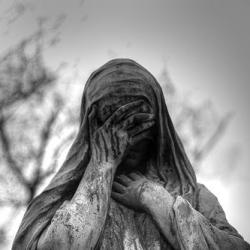By Sharon Groves
Photo Courtesy of Doug88888 (Flickr.com CC License)
 I remember discovering Jane Austen's novels as a teenager. I couldn't get enough of them then, and still can't today. At the heart of her stories are thoughtful, three-dimensional characters that say yes to romantic love as the foundation of their marriages despite the tyrannical control marriage wielded over women's lives. No institution had more power to keep women contained -- women were denied the right to own property; they had nearly no legal protection from physical abuse; and with employment scarce, they had few options but to engage in a corrupt marriage market.
I remember discovering Jane Austen's novels as a teenager. I couldn't get enough of them then, and still can't today. At the heart of her stories are thoughtful, three-dimensional characters that say yes to romantic love as the foundation of their marriages despite the tyrannical control marriage wielded over women's lives. No institution had more power to keep women contained -- women were denied the right to own property; they had nearly no legal protection from physical abuse; and with employment scarce, they had few options but to engage in a corrupt marriage market.
Austen and other novelists in the late 18th and 19th centuries exposed this system of oppression not through rants against injustice but by audaciously introducing romantic love to the institution of marriage. If we need a historic precedence for our present day struggle for marriage equality, I believe we could do much worse than turning to Austen.
Despite their fairytale endings, Austen's novels show us how love unmasks oppression and rescues an institution from its own corruption. This is as true today as it was in the 19th century. When lesbian, gay, bisexual and transgender people ask to have their relationships formally honored, they bring us back to the core of what marriage should be: love. By returning to this core value, LGBT people remind us that the institution of marriage has been used to maintain the status quo.
We know, for instance, that marriage confers over 1,100 protections and responsibilities and these influence every part of our life from health care, to parental rights, to the ability to take time off work to care for a sick spouse or non-biological child, to keeping a family together when one partner is not a U.S. citizen, to claiming survivor rights and social security. The list is extraordinary in its depth and breadth. See Freedom to Marry for a detailed explanation of the rights conferred by marriage.
But, what does all of this have to do with Christianity or with Kristin Tremba's argument that that the Christian Church has for centuries "viewed marriage as an exclusive and sacred union between one man and one woman"? Although Tremba is right that some Christian churches have restricted marriage to between one man and one woman, the church is far from monolithic. As I pointed out in my previous piece, a number of Christian denominations and individual churches have been blessing same-sex unions for a long time and the momentum is clearly on our side.
But further there is no biblical precedent for an exclusively one man/ one woman marriage model. As Dr. Mary Tolbert explains, "polygyny," the presence of multiple women in the family, was the most common pattern of marriage in the Bible. Whether we look at patriarchs like Jacob or religious leaders like Moses or kings like David, we find ample evidence of multiple wives. The most formidable example of this pattern can be found in Solomon, David's son, who had, so the Bible tells us, 700 wives and 300 concubines." Just as we came, over time, to see polygyny as unjust and changed our norms to reflect our new understanding, so can we adjust the rules about marriage to match our new understanding of justice for LGBT people.
We also know that during the ancient period there was no language for committed, loving same-sex relationships. As with the idea of romantic love in marriage, the concept had not yet been articulated. We do know, however, that the Bible overwhelmingly emphasizes the power of love: 1 John 4:7: "Beloved, let us love one another, because love is from God; everyone who loves is born of God and knows God."
Love not only unmasks oppression, but it also opens our hearts to God. By loving one another we learn how to love God. The beautiful, life-sustaining, power of marriage proclaimed by 19th century novelists and reclaimed now by LGBT couples is the significance of love for all of us. At its best, the church sanctifies the love between two people as opening a way for us to love God and our neighbor more fully.
At its worst the church simply reinforces the status quo, a hierarchical system in which some people are deemed deserving and others not. If we want to redeem the power of our faith we aren't going to get there by reinforcing the rules of oppression, whether it is in the temple in Jesus' time or many of our churches today. Jesus' ministry was as much with the marginalized as it was with the powerful because a ministry of love can't reinforce hierarchies; it can only break them down.




